Decades: Compiling the Ultimate Library with David F. Ross
Welcome back to Decades. I am on a mission to compile the Ultimate Library, my Decades Library, which only offers readers a choice of the very best books.
I started this mission back in January 2021 when I asked myself the question: If you were to open a new library and had zero books available, which books should be added to the shelves? I knew I would not be able to answer the question alone so each week I am joined by a guest and I ask them to nominate five new books which I should add to the library shelves.
There are only two rules governing the choices my guests make:
1 – Choose ANY Five Books
2 – You May Only Choose One Book Per Decade From Five Consecutive Decades
This week it is my pleasure to welcome David F Ross back to Grab This Book. One of the first book-launch events I attended after I started blogging was for David’s debut The Last Days of Disco. I love that David writes characters that sound like the people I am surrounded by each day and his books always hit the mark.
David kindly agreed to take on my Decades challenge after I put him on the spot when I bumped into him one morning as I was out walking my dog. His selections are tremendous so I may need to start using the pooch and a lack of coffee more often when I invite people to take part in Decades! Over to David…
 David F. Ross was born in Glasgow in 1964. His debut novel, The Last Days of Disco, was shortlisted for the Authors’ Club Best First Novel Award, and received exceptional critical acclaim, as did the other two books in the Ayrshire-based Disco Days Trilogy – The Rise & Fall of the Miraculous Vespas and The Man Who Loved Islands. He is a regular contributor to Nutmeg Magazine, and in 2020 he wrote the screenplay for the film Miraculous, based on his own novel.
David F. Ross was born in Glasgow in 1964. His debut novel, The Last Days of Disco, was shortlisted for the Authors’ Club Best First Novel Award, and received exceptional critical acclaim, as did the other two books in the Ayrshire-based Disco Days Trilogy – The Rise & Fall of the Miraculous Vespas and The Man Who Loved Islands. He is a regular contributor to Nutmeg Magazine, and in 2020 he wrote the screenplay for the film Miraculous, based on his own novel.
There’s Only One Danny Garvey is his fifth book. It was shortlisted for Scottish Fiction Book of the Year, 2021. His sixth novel will be published by Orenda Books in December 2022.
Decades
It’s an intriguing idea to select five books from consecutive decades to ‘represent’ me in the ultimate library. If this is a type of literary mixtape, should there be a natural flow to the selection? Should they reflect my ever-changing moods? Will they infer that I’m too narrow-minded? Will my stereotypical choices rule me out of future hypothetical dinner party invitations? Will anyone else ultimately give a fuck?
I may be over-thinking this task.
I didn’t read a lot as a child. Mine wasn’t a family background that encouraged reading. I do not recall there being books in our house and perhaps as a result, I was always occupied by other things: music and football, mainly. These selections are from a period of life where my latent interest in literature developed. From when I forced myself to make time to read because I understood my appreciation of the world around me could be enhanced by more than LPs by The Jam and Morrissey’s lyrics.
These choices are stereotypical. All male writers. All white. I am making up for the narrowness of focus they might imply now that I am a writer myself, but I chose these books because they are the ones that inspired me to write. The ones that persuaded me that I could have something to say that was worth writing about. The capacity to inspire others to create is a very powerful motivation for any artistic endeavour. And despite their flaws and blemishes, you can never forget your first love(s), right?
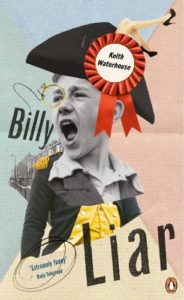 The 1950s – Billy Liar, by Keith Waterhouse (1959)
The 1950s – Billy Liar, by Keith Waterhouse (1959)
Billy Liar paints a monochromatic picture of a country still struggling to come to terms with the end of Empirical power in the wake of two devastating wars. (The more things change, the more they stay the same, eh?) Everyone in Billy Fisher’s world is trapped by these circumstances, apart from Liz, the beatnik girl played by Julie Christie in the film adaptation. She represents freedom; an escape from a life of pram-pushing drudgery or factory conditioning. The writing is ahead of it’s time in tackling mental health issues in young men. This book’s influence on The Last Days of Disco is perhaps inevitable given how much of an impact it had on me.
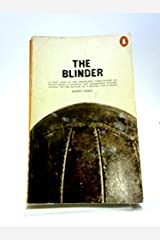 The 1960s – The Blinder, by Barry Hines (1966)
The 1960s – The Blinder, by Barry Hines (1966)
Another typically northern story of a young footballer, Lennie Hawk, whom many supporters considered him to be the reincarnation of a flawed genius from his club’s past. The Blinder was the first book I can remember loving. It’s less well known than A Kestral For A Knave and I’m perhaps the only person in the world who thinks it’s better. I’m still slightly ashamed to admit that I stole this book from a small, local library during an ill-thought out mid-70s break-in. Although, since I still have the stolen copy, and it continues to inspire me now, hopefully the local Council can forgive me.
There’s Only One Danny Garvey owes a massive debt to this brilliant book.
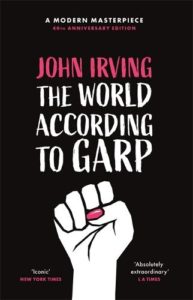 The 1970s – The World According To Garp, by John Irving (1978)
The 1970s – The World According To Garp, by John Irving (1978)
I stumbled on this book almost by accident. A fellow passenger left it on a London train and told me I could have it when I alerted her. Garp is a comic novel full of idiosyncratic characters; the successful writer Garp, his accidental feminist icon mother, a former football player turned transgender activist, and a supporting cast of assassins and suburban seductresses and cult members and unicycling bears and fortune tellers. The book’s scope is vast, and it directly influenced the chaotic, diverse world I imagined in The Rise & Fall of the Miraculous Vespas. It’s an angry novel although that underlying rage is brilliantly obscured by the wit and humour of the writing. That’s a difficult balance to strike. The World According to Garp is still hugely relevant. Sexual intolerance is still all around us.
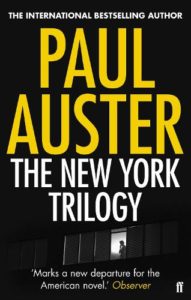 The 1980s – The New York Trilogy, by Paul Auster (1987)
The 1980s – The New York Trilogy, by Paul Auster (1987)
“The story is not in the words; it’s in the struggle.”
I have this as an epigram for my next book which is due to be published later this year. The New York Trilogy is like the city itself; complex, multi-layered, and full of contradictions. For me, it represents a way of telling a story that doesn’t offer easy answers but simply asks more questions. I like the idea of the reader having to make sense of a book, and ultimately of what its intertextuality means to them alone. I found out late last year that Paul Auster and I share a close mutual friendship. His writing – particularly around serendipitous meetings and coincidental occurrences – has influenced all of my books, so it was a real thrill for me that he read Welcome To The Heady Heights.
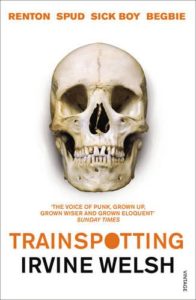 The 1990s – Trainspotting, by Irvine Welsh (1993)
The 1990s – Trainspotting, by Irvine Welsh (1993)
I think Irvine Welsh – and Trainspotting especially – has changed the way the Scottish literary voice is appreciated around the world. Trainspotting is something of a Year Zero for Scottish authors from a working-class background. It has blazed a trail for so many brilliant books. In recent years, Shuggie Bain and The Young Team share its DNA. There is so much energy and life and – paradoxically – hope bursting out from the pages that it’s impossible not to get caught up in the exuberance of the writing, and the authenticity of the characters, despite the misery (for the most part) of their situations.
Trainspotting isn’t a period piece, or a point-in-time consequence of the social chaos visited on Scotland by the Thatcher Government. It’s the story of the world we all live in today.
Huge thanks once again to David. I have already ordered a copy of The New York Trilogy and this feature continues to take over my TBR!